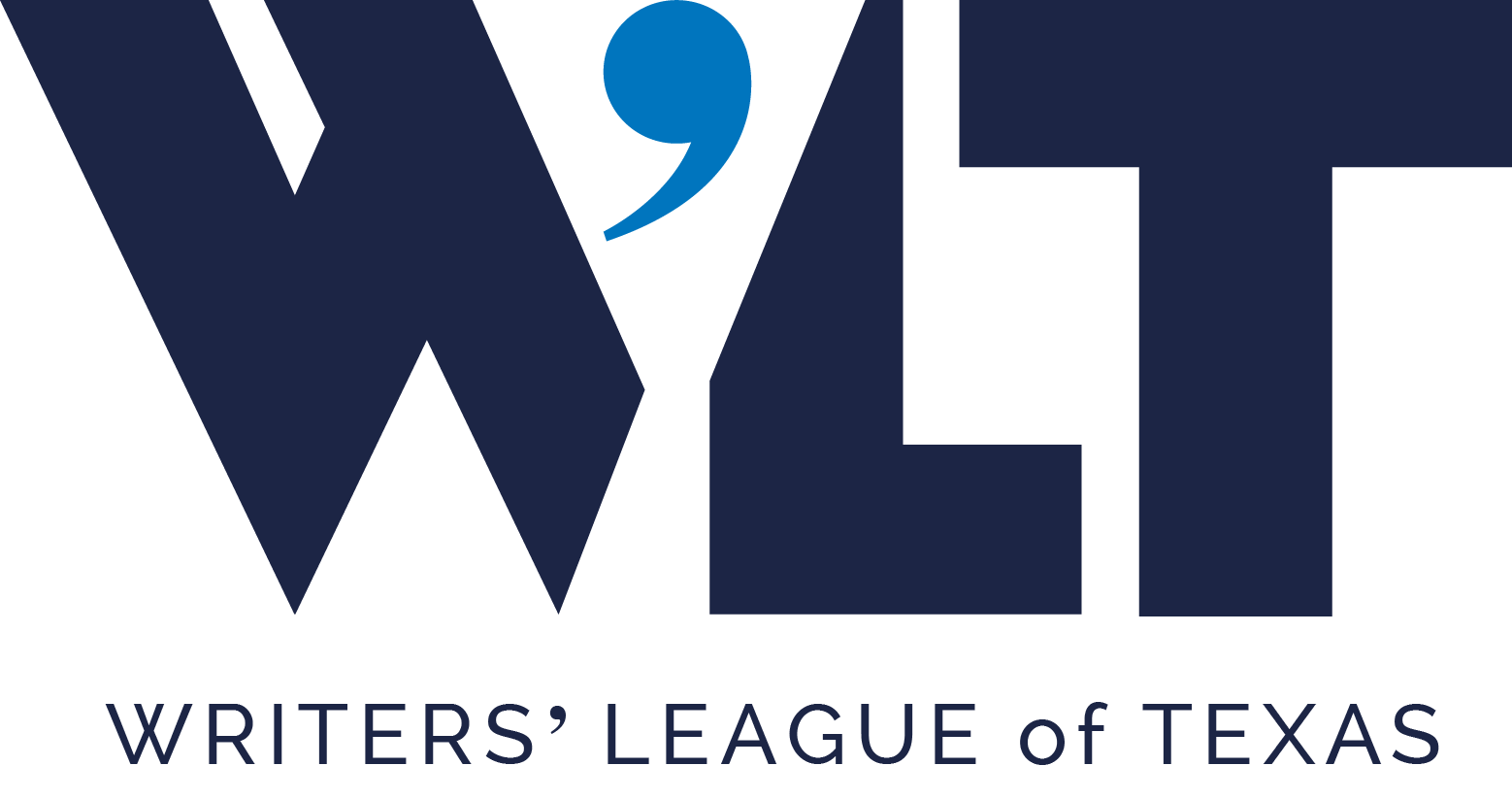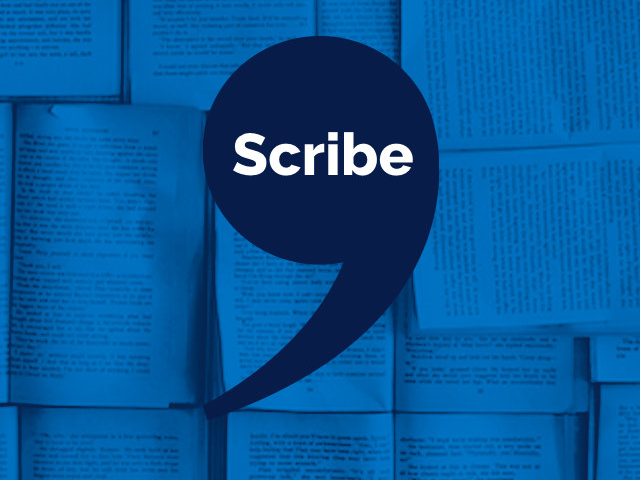“My favorite writing time and ritual is waking pre-dawn…The morning can be wonderful, as exhilarating as a Barton Springs swim. Other mornings I feel stuck, useless, and tired. But I have never regretted waking up, never regretted sitting with the page in those dark, early hours.”
-Owen Egerton
From writing books to making films to clowning on stage, Jodi and Owen Egerton play a key part in many of the scenes that make Austin a national hotspot for creativity. Jodi is a celebrated workshop leader, book editor, and wordslinger for Typewriter Rodeo. Owen is the author of several novels and numerous screenplays as well as a feature film director. He has been voted Austin’s Best Author by the readers of The Austin Chronicle seven times.
Jodi and Owen are teaching a class for the Writers’ League called “This Word Now: Brainstorming Your Way into Stories and Out of Dead Ends” on Saturday, August 27, 2016 at the ACC Riverside Campus. Based on their new book on the craft of writing, This Word Now, Jodi and Owen will lead a high energy morning of conversation, exercises, and insight into the art of brainstorming. As a bonus, each student will receive a copy of This Word Now—recently featured in the Austin American-Statesman. Read the interview below and visit the class page to learn more.
 Scribe: You are both absolute creative powerhouses. Jodi, you’re a workshop leader, book editor, and wordslinger (i.e. spontaneous creator of poems) for Typewriter Rodeo. Owen, you’re a novelist, screenwriter, film director, and podcast host. On top of these pursuits and more, you’re parents of two. How do you balance all the demands on your time and creativity, and most importantly, when do you sleep?
Scribe: You are both absolute creative powerhouses. Jodi, you’re a workshop leader, book editor, and wordslinger (i.e. spontaneous creator of poems) for Typewriter Rodeo. Owen, you’re a novelist, screenwriter, film director, and podcast host. On top of these pursuits and more, you’re parents of two. How do you balance all the demands on your time and creativity, and most importantly, when do you sleep?
Owen Egerton: Balance has never been our best skill. Some people have the ability to stand in the center of the see-saw perfectly still. But I get very curious about the extremes and dash out to see what’s out there, then rush back to the other side. Sometimes it’s a flaying mess, other times it’s dancing. I think what’s key is that we love what we do—the writing, the performing, the parenting. It’s work, of course, but the work is a kind of play. When it’s not fun, we know something’s up. We pause and listen, and maybe make a change. We look out for each other and make sure there’s breathing room, family meals, afternoon dance parties, late night bottles of wine, and long walks.
Jodi Egerton: We’re often both moving in seventeen directions at once. But one thing that we’ve discovered over the years is that we both thrive when we’re in the thick of a few big projects. I think because of this similarity in our working style, we’re able to support each other well. Also, Owen doesn’t sleep.
Scribe: This Word Now is chock full of writing exercises and insight for kindling creativity, and you say in the book that you collaborated on every essay and exercise. Can you describe the development process for writing this book? How does one brainstorm about, well, brainstorming?
OE: It was great to investigate how I write. What are the steps I go through but had not yet thought through? Some of the process was simply observing how we create.
JE: We met back in 1999 when I joined Owen’s improv troupe. We connected through the world of improv—saying yes to and building on each other’s ideas, taking risks and embracing a spirit of play. It’s how we work together still—whether writing a book or cleaning the house. While working on the book, we’d toss ideas back and forth, brainstorm with big mindmaps, and mostly encourage each other. In the editing stages of the book, we spent a few weeks pacing around our kitchen, reading each essay out loud and revising sentence by sentence, finding just the words we wanted to share each idea.
Scribe: I was particularly struck by the section “Place, Time, Ritual,” and the E. B. White quote with which you opened that section: “A writer who waits for ideal conditions under which to work will die without putting a word on paper.” Can each of you talk a little more about your place, time, and ritual for writing?
OE: When a deadline is approaching, I’ll write everywhere and anywhere—traffic lights, under the stage at the Alamo Drafthouse Ritz, waiting rooms, park benches. But my favorite writing time and ritual is waking pre-dawn, sneaking out of the house before the kids are awake, heading either to the desk we’ve got in our backyard shed or some all-hour coffee shop. I love that quiet strangeness. My shed feels like a monk’s cell and I’m waking for private Lauds. At the coffee shops, I find a corner. I read a little—something like poetry or poetic essays—sometimes I’ll scribble a few lines in my journal and then dive into the writing. The morning can be wonderful, as exhilarating as a Barton Springs swim. Other mornings I feel stuck, useless, and tired. But I have never regretted waking up, never regretted sitting with the page in those dark, early hours.
JE: I tend to write best when I’m super comfy. These days I often write in bed, snuggled in a nest of the covers. Back when I was in graduate school, I kept abandoning my desk in favor of the bed, the couch, the floor. For my birthday, Owen surprised me with my perfect writing space—a cozy, plush dog bed. It was amazing. I probably owe my Ph.D. to that dog bed.
Scribe: Can you give us one example of an exercise that students might complete in your WLT class?
JE: A lot of our exercises are inspired by our work in improvisation. Line Pop is one we love to teach in classes, and you can easily do it solo. Gather a collection of lines—these can be lines from songs, quotes from books, instructions from your TV manual, writing on the side of your medicine bottles. Write them down on slips of paper. Set a timer for two minutes and begin writing—this can be a story you’re working on, or you can pick a classic story, say, Snow White, and begin writing your own version of it. When the timer goes off, grab one of the lines—you might end up with “You can’t always get what you want” or “Do not take on an empty stomach”—and write it down as the next line of your story. Then reset the timer and continue writing, but don’t ignore that line—allow it to be part of the story and guide where the story goes next. It’s a fun exercise for forcing you outside of your natural patterns and styles, and it’s great for seeing what kinds of surprising ideas your brain comes up with when challenged with absurdity.
Scribe: Other than This Word Now, of course, what other books or methods do you recommend for writers or artists looking to jumpstart their creative mind?
JE: I’m still such a fan of the classics— Natalie Goldberg’s Writing Down the Bones, Anne Lamott’s Bird by Bird, Stephen King’s On Writing. And I also highly recommend taking an improv class—it’s an amazing way to open your brain and expand your boundaries.
OE: I’ve recently fallen in love with Mary Ruefle’s Madness, Rack, and Honey. Her lectures spill over the brim of craft and technique and into the realms of poetry. They are meditations on the magic we conjure with nothing more than words. We are also big fans of WLT Program Director Michael Noll’s Read to Write Stories (readtowritestories.com)! Those exercises and essays are outstanding.
Scribe: What new projects can we look forward to from the two of you in the coming year?
OE: It should be a big year! My feature film FOLLOW, which I wrote and directed, comes out in theaters and streaming on September 30th. That’s exciting!
JE: Typewriter Rodeo will be popping up to craft custom poems on our vintage typewriters throughout the year. We’ll be at the Texas Book Festival for sure. That’s been such an amazing ride, working with some of my dearest friends, traveling the world, and sharing our love of words and poetry.
—
Thanks, Jodi and Owen!
Click here to register for Jodi and Owen’s class.
Click here for our current class schedule.









